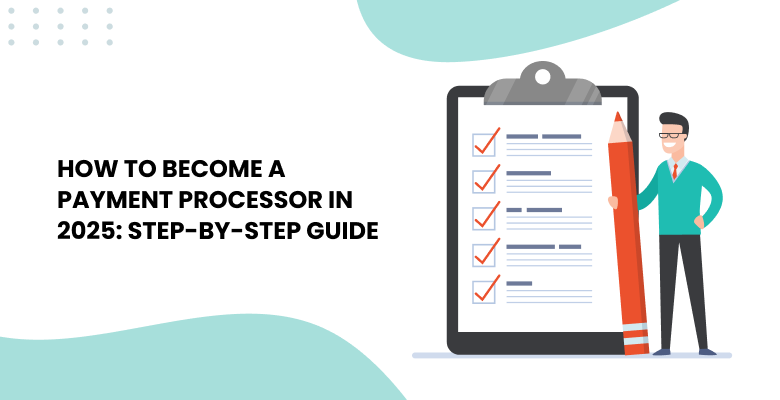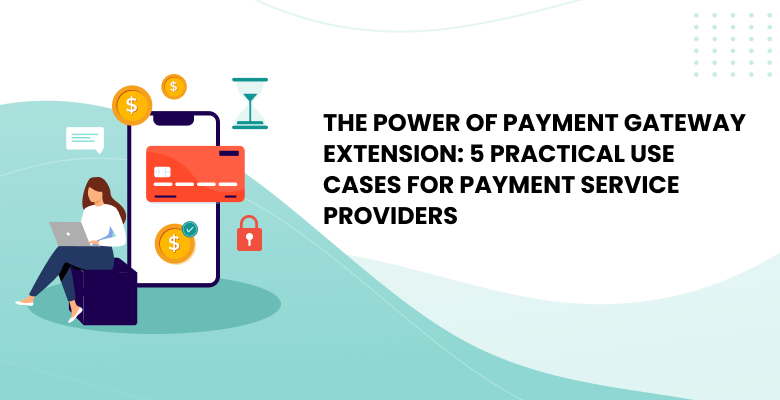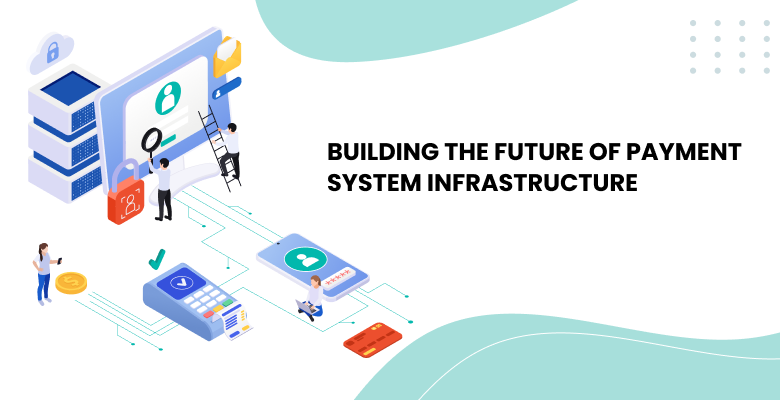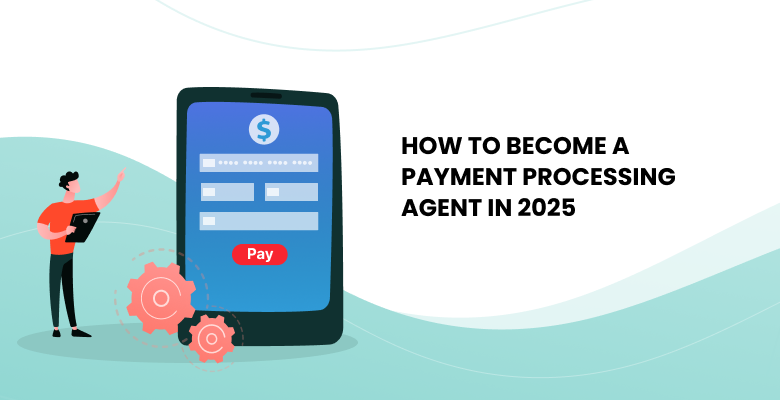
- What Does a Payment Processing Agent Actually Do?
- Why Become a Payment Processing Agent?
- How White-Label Payment Software Empowers Payment Processing Agents
- Steps to Succeed as a Credit Card Processing Agent
- Legal, Compliance, and Risk Considerations
- How to Choose the Right Payment Processor or Platform
- How to Grow Your Merchant Portfolio
- Akurateco: The Ultimate White-Label Payment Solution
- Trends Shaping the Future of Payment Processing Agents
- FAQ
Merchants often face high payment decline rates, increased transaction fees, hidden compliance risks, and limited payment methods, which frustrate customers and cut down revenue. That’s why demand for payment processing agents is higher than ever, and more industry players are starting to wonder how to become a digital payments agent and create real impact.
Becoming a payment processing agent in 2026 is your entry point into one of the fastest-growing and promising industries. According to Grand View Research, the market is projected to reach $139.9 billion by 2030 — and you can become a part of this momentum. As a trusted advisor, you’ll help businesses run secure, scalable payment systems — an ideal role for aspiring agents or entrepreneurs with a drive to learn and grow.
Wondering how to become a payment processing agent? You can work with a single company, but that limits your potential. A better approach is a white-label payment gateway processing like Akurateco — brand it, sell it as your own, and start earning with a fully ready solution. The solution comes with over 600+ payment method integrations, providers, and acquirers, as well as customizable workflows and dedicated support to help you onboard merchants quickly and scale your business.
In this article, we’ll break down the essentials of a payment processing agent job and provide recommendations to help you succeed in this role.
What Does a Payment Processing Agent Actually Do?
Just as a real estate agent connects a prospective tenant with a property owner, a payment processing agent advises merchants on the most effective modern payment systems to achieve their business goals.
Agents don’t own the payment infrastructure themselves, but instead sell existing software from the associated organization that offers payment processing services. As a result, this cooperation enables businesses to accept payments easily, safely, and efficiently.
Agents earn a residual commission on each sale, a share of the fees each time their client processes a payment, and build their own network within the credit card industry. For those ready to take it further, becoming a registered ISO or MSP unlocks even greater opportunities to scale and build long-term credibility in the payments ecosystem.
A payment processing agent usually takes the following responsibilities:
- Identify and recruit businesses that can benefit from payment solutions
- Perform merchant onboarding for the account setup
- Provide the necessary tools and services for the merchants to take up credit card payments
- Provide ongoing assistance with the solutions
- Offer expert guidance on how to use payment processing services to support business needs
By recommending modern payment software, agents enable merchants to integrate various global payment methods, connect with multiple financial institutions, and ensure compliance with diverse regulations. Advanced payment technologies, including fraud prevention tools, recurring billing, analytics, and point-of-sale systems, provide significant advantages for merchants. As a result, they can reduce transaction fees, increase revenue, and deliver a secure payment experience.
Why Become a Payment Processing Agent?
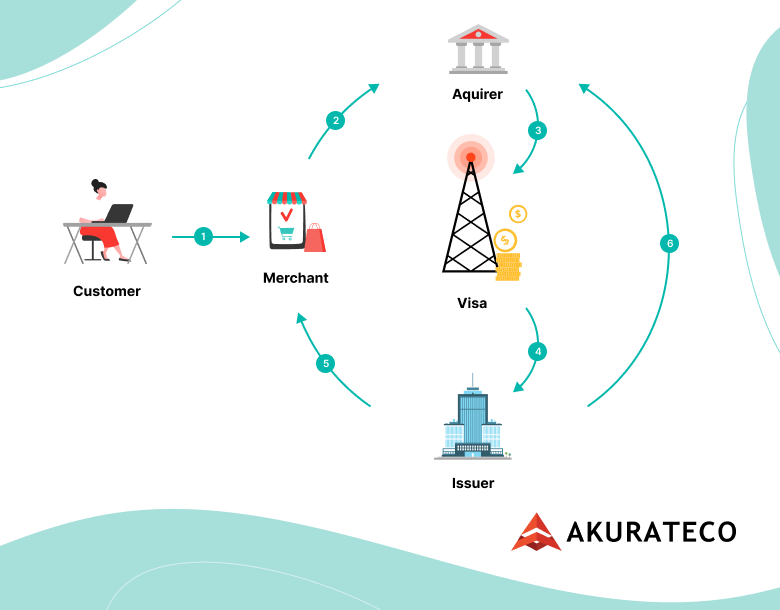
Working as a payment processing agent offers many benefits, making it an attractive career path for those looking to grow their business in a fast-growing industry.
Let’s take a look at the main benefits of this field:
High-income potential
Stable passive income from commissions from referred merchants.
Flexibility
The work can be structured in any format, allowing you to focus on strategic growth without strict time constraints.
Growing industry
With global e-commerce sales projected to exceed $7 trillion by 2025, the demand for efficient and convenient payment solutions continues to grow, opening up opportunities for long-term growth.
Scalability
You can gradually expand to new regions or industries, including SaaS, fintech, or retail.
Access to innovative technologies
Such as white-label payment processing software that automates processes and increases your efficiency.
Low upfront investment
Modern providers offer ready-made platforms, making it easy to get started and minimizing risks.
Developing professional skills
Working in this field gives valuable experience in sales, customer service, and financial management.
These benefits make the role of a payment processing agent financially rewarding and promising in the long term.
How White-Label Payment Software Empowers Payment Processing Agents
White-label payment software, such as Akurateco, gives agents a powerful tool to offer payment orchestration services under their brand, significantly improving their competitiveness and opportunities in the market. And it does so with minimal effort.
Key benefits include:
Customization
You can tailor the interface and functionality of such a platform to your unique brand requirements, including logos, color, and user experience. This creates the impression of a completely personalized solution for your customers.
Control
The platform provides complete management of trading accounts, transaction data, analytics, and reporting, allowing agents to monitor and optimize operations effectively.
Cost-effectiveness
Using a ready-made platform saves significant costs on developing and maintaining your own software.
Speed to market
A white-label solution lets you quickly launch your services, bypassing complex and time-consuming development stages. This is important in a highly competitive environment where speed is key.
Scalability support
Ready-made platforms offer the flexibility to grow, supporting adding new features, merchants, and markets without significant upgrade costs.
Security and compliance
Typically, such features are already integrated, mainly features for security compliance, including PCI DSS standards, which reduce risks and increase customer confidence.
This covers the issue’s technical side, and you can focus on strategy.
Steps to Succeed as a Credit Card Processing Agent
As the payment processing market continues to expand, merchants seek secure, flexible, and convenient solutions to maximize their business potential. To achieve success, you need a clear strategy that will help you build long-term income and establish trust with your merchants.
Follow these steps to position yourself as a reliable payment processing agent and create a sustainable business model in 2026.
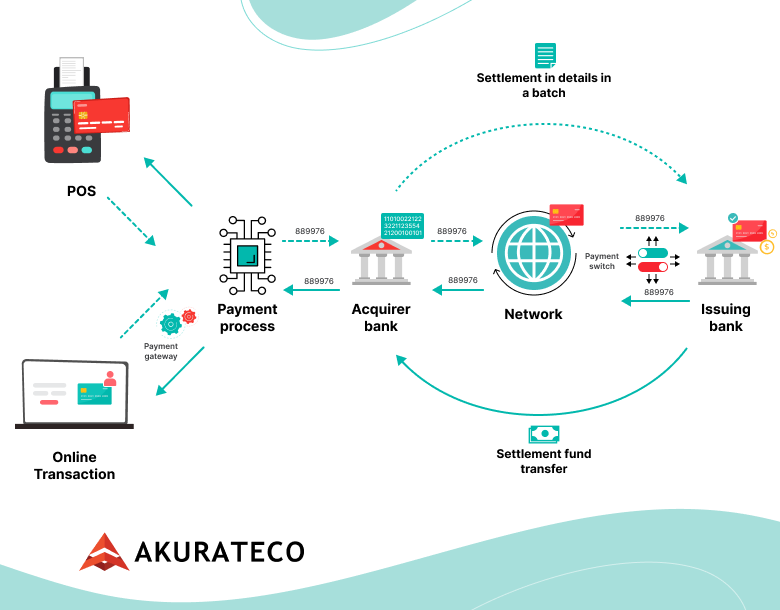
Understand the business
If you’re wondering how to become credit card agent, start with the basics. You don’t necessarily need to be an expert. In the beginning, focus on gaining a solid grasp of how the system works. Dig deep into the roles of issuing and acquiring banks, payment processors, interchange rates, and the main types of payment gateways.
You also need to understand the main pain points of merchants. With all this preparation and knowledge, you’ll be able to present yourself as a trusted advisor and communicate with greater confidence.
Choose the right processor
Your reputation directly depends on the payment services partner you offer. If you genuinely see value in the software yourself, merchants are far more likely to do the same. Therefore, taking the time to select the right processor with competitive rates, reliable technology, and strong agent support is crucial.
Build your customer base
As a payment processing agent, you need to work on growing your network. Look for potential customers among local businesses, attend industry events, and use digital marketing methods. Each new contact or client increases the chances of getting word-of-mouth referrals.
Offer value-added services
Merchants often need more than just payment processing. Access to multiple payment gateway integrations, fraud prevention, multi-currency support, and advanced analytics are robust additional services that can help you differentiate. By offering them, you can enhance merchant satisfaction and loyalty.
Consider white-label software for better opportunities
Instead of distributing existing solutions from other providers, you can sell your own, but without building anything yourself. White-labeling enables you to offer merchants a branded, ready-to-use payment platform. This significantly increases your earnings as you build recurring revenue streams and strengthen merchant loyalty.
Akurateco’s white-label payment gateway solution empowers payment processing agents to get started smart and fast. Offer merchants turnkey payment solutions with over 600+ payment gateway integrations and built-in latest technologies — without any development hassle. Onboard them instantly with simple guides and intuitive dashboards, and leverage built-in reporting and analytics to optimize performance. With dedicated support and ongoing assistance, you can maintain a smooth and profitable business operation.
Discover how Akurateco can help you launch and scale your payment processing business with ease and confidence.
Stay informed
The payment processing industry is evolving very fast. Always be curious about trends and the latest updates. Keeping up with regulations, security standards, and new technologies ensures your business remains competitive and compliant.
Legal, Compliance, and Risk Considerations
As an agent, you are directly accountable for your customers’ security and regulatory compliance. This means any payment processing software you provide must have essential safeguards fully implemented:
- PCI DSS (Payment Card Industry Data Security Standard) compliance. A set of security standards for any entity that processes, stores, or transmits credit or debit card information.
- KYC (Know Your Customer) processes. These verify a customer’s identity to prevent crime, typically involving customer identification and customer due diligence (CDD) for risk assessment purposes.
- Fraud mitigation. This includes everything that helps reduce fraudulent activities, such as robust internal controls and technology solutions like monitoring and analytics.
- Chargeback handling. Robust tools help prevent chargebacks, and even in case they do occur, they help merchants simplify and automate the process.
These features determine the security and smooth operation of payments. Failure to implement the above measures can result in significant costs, including hefty fines up to $100,000, blocked accounts, and reputational damage for both merchants and agents.
As an advising agent, your role is to guide merchants toward the most secure, efficient, and compliant solutions. The right software and partners like Akurateco, equipped with PCI compliance and advanced security tools, take these burdens off your shoulders, giving agents and merchants alike peace of mind.
How to Choose the Right Payment Processor or Platform
If you decide to become a merchant services agent, you need to take the selection of a partner seriously. To help you, we break down the essentials that a right payment processor or platform must have.
Features
A wide range of integrations, multi-currency support, and access to trending payment methods are critical operational features for merchants. Fraud prevention tools must be implemented too for smooth and secure performance.
Reporting
Merchants always want to optimize every possible process. Real-time analytics can provide them with greater clarity into payment flows, transaction success rates, chargebacks, and customer behavior.
Flexibility
White-label branding is key if you want to customize software and sell it as your own. Modern ready-to-use solutions come with numerous growth features, including self-onboarding, customer validation, and incremental revenue from your own branded software.
Support
As an aspiring agent, you may not have all the technical knowledge. So, support is absolutely critical. Your partner should provide a dedicated team to resolve incidents, assist with technology setup, and keep operations running smoothly.
Pricing
Finally, evaluate the cost structure. Transparent pricing, competitive rates, and fair residual splits are crucial to ensure long-term profitability.
How to Grow Your Merchant Portfolio
Success in the payments industry comes not just from knowing how to start, but also from learning how to scale your business sustainably over time. Focus on key areas such as marketing, niche selection, and client retention to build a thriving business.
Picking a Niche for Your Services
Targeting the right market can make a big difference. These days, retail, SaaS, subscription services, and high-risk verticals are among the top sectors for payment solutions.
Online and Offline Marketing Strategies
Speak up about your expertise. Use every possible channel for this. Effective tactics include SEO, LinkedIn outreach, networking events, referral programs, and cold outreach.
Building Long-Term Client Relationships
Your network is what drives your growth. Nurturing merchants with ongoing support, upselling additional services, and value-added tools helps you build a loyal base and increases the chances of being recommended.
Akurateco: The Ultimate White-Label Payment Solution
For payment processing agents, success heavily depends on the value and the effectiveness of the solutions they offer to merchants while building recurring income. Akurateco provides an advanced white-label payment platform designed for payment processing agents, enabling them to transform technical capabilities into tangible business advantages.
Fast merchant onboarding. With easy integration, automated workflows, and an intuitive interface, agents can quickly register merchants, which significantly shortens the sales cycle and allows businesses to get started right away. Custom integrations are available upon request for unique merchant experiences.
- Expert support. The platform comes with Payment Team as a Service, so agents can contact a technically experienced team to resolve any issues fast.
- Insight-driven decisions. Detailed reporting and analytics help agents monitor transactions, optimize operations, and proactively support merchants.
- Strong security and compliance. Built-in PCI compliance and advanced safeguards protect both merchants and agents, reducing risk and fostering trust.
- Branded experience. White-labeling enables agents to customize the platform, allowing them to offer a fully visually independent solution to merchants and emerge as a credible partner.
- Revenue growth. With over 600+ integrated payment methods and providers, agents can attract more merchants worldwide and build stable, recurring revenue streams.
- Advanced technologies. Agents can focus on growth opportunities rather than technical complexities, as intelligent routing, cascading, and automated onboarding streamline payment processes.
Trends Shaping the Future of Payment Processing Agents
The evolution of the payments industry creates new opportunities for agents. For those exploring how to become a payment processing agent, keeping up with the following trends can help generate new revenue streams, enhance merchant loyalty, and differentiate in a competitive market.
Biometrics and AI-powered authentication
Payments are increasingly using biometrics, such as fingerprints, facial recognition, and voice authentication. This speeds up transactions and reduces the risk of fraud. Agents can advise merchants on implementing solutions with these advanced features, helping them enhance security, PCI compliance, and improve customer trust.
Cloud solutions and infrastructure flexibility
Clouds enable payment solutions to adapt to business needs, providing flexibility and reducing infrastructure costs. It also improves data availability and recovery, which is essential for global transactions. An agent plays a crucial role in guiding merchants toward flexible, cloud-native solutions, which determine their expansion opportunities.
IoT Integration
With payments expanding to smart devices, including watches, cars, and home appliances, agents can advise merchants on connecting new endpoints. This opens up new horizons for automation in the payments area, allowing agents to present themselves as forward-thinking service providers.
Cross-border and Global Payments
Globalization increases demand for multi-currency and cross-border payment solutions. If you decide to become a merchant services agent, you can help merchants simplify international transactions, reduce delays and transaction fees, and expand their business globally. This results in higher-value deals and larger merchant portfolios.
Central Bank Digital Currencies
More and more, governments are issuing their own digital currencies, which creates a whole new avenue for regulating and stabilizing financial systems. These newer digital currencies might become part of the digital payment ecosystem. As digital currencies become regulated and mainstream, agents can educate merchants on adoption and compliance.
AI-Powered Payments for Personalized Experiences
AI allows merchants can tailor customers’ payment experiences and optimize offers, including discounts and payment modes. Thus, today, the primary vector of trends focuses on optimization, automation, and personalization. Agents can help businesses implement AI-powered systems to enhance customer engagement, increase revenue, and improve retention.
Akurateco is continually upgrading its platform, enabling clients to use cutting-edge payment gateway integration technologies and stay ahead of the market competition.
FAQ
Do I need prior experience in finance or tech to become an agent?
To become a merchant services agent, you don’t have to be an expert. In the beginning, learn the basics of how payment processing works. Gradually, you’ll build on this foundation and develop more industry expertise.
What tools or platforms do I need to manage merchants and payments?
Typically, you need many different tools and technologies to effectively manage merchants and payments. This includes payment gateways, merchant management systems/CRMs, risk and fraud prevention tools, reporting and analytics dashboards, and other related services. At Akurateco, we provide access to all these tools on a single, ready-to-use platform.
How long does it take to get started and see income?
The time it takes to start using software and seeing the progress actually depends on how quickly you bring merchants on board and begin processing transactions. The Akurateco platform is designed to help you move from signup to revenue as smoothly and efficiently as possible. On average, it typically takes between two and five days for setup and onboarding, after which you can proceed with merchant onboarding and start generating revenue.
What are the biggest challenges payment agents face today?
Tough competition makes it hard to become a merchant services agent. Akurateco empowers you to differentiate in the crowded market by offering a platform with over 600+ ready-made connections, the latest technologies, and fast onboarding.
Do I need to hire developers to use Akurateco’s system?
No, you don’t need to hire any additional development team. Akurateco handles everything end-to-end, allowing you to focus on growing your merchant portfolio instead of managing the technical side.
What makes Akurateco different from other white-label payment platforms?
Akurateco’s founders share +50 years of combined experience in the payments industry, making it a prominent player on the market. With this deep knowledge, the platform is built to anticipate and solve challenges, while a dedicated technical support team guides agents through setup and scaling. Akurateco offers over 600+ integrations, custom connections upon request, and flexibility to choose SaaS or on-premise deployment – all to help agents stay ahead of the curve and quickly introduce merchants to the latest payment technologies.


